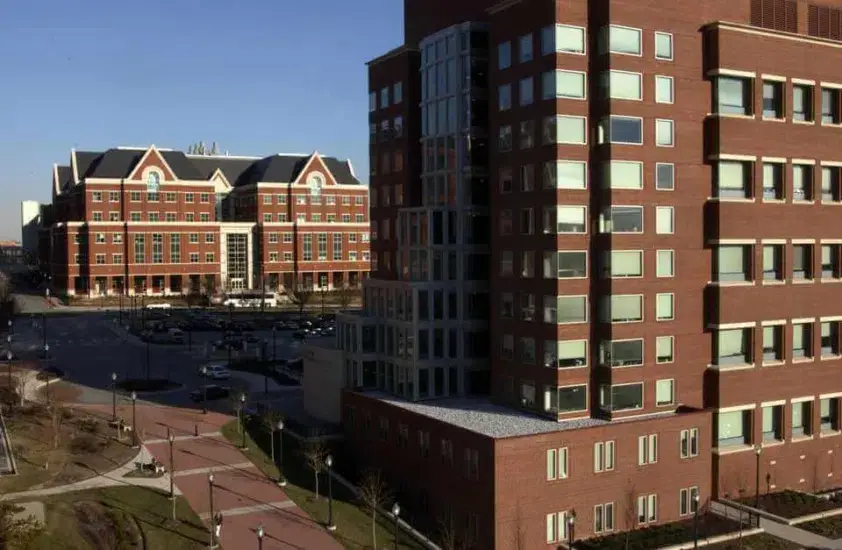
Johns Hopkins provides comprehensive world-class care for all conditions related to the breast for optimal breast health. Our services include preventive and noncancerous surgical treatment, risk assessment, diagnostic screenings, and treatment. We also have a team of survivors who offering a peer-to-peer survivor volunteer matching program for John Hopkins breast cancer patients.
Johns Hopkins Breast Health Services, is one of the leading programs in the region, delivering some of the most advanced treatment practices in the fight against breast cancer.
Our team uses evidence-based approaches, the latest research, and compassionate, patient-centered care to develop advanced treatment plans tailored to each patient for benign and malignant breast conditions.
As part of the Johns Hopkins Kimmel Comprehensive Cancer Center, members of the multidisciplinary team including surgeons, medical oncologists, radiation oncologists, radiologists, advanced practice providers, nurses, and patient navigators, offer a full range of services to decrease the emotional and physical impact of a breast cancer diagnosis through innovative techniques such as tissue rearrangement to reduce cosmetic defects associated with breast surgery.In addition, Johns Hopkins offers support to the newly diagnosed -a special peer-to-peer support program. The patient navigator will connect you with a breast cancer survivor volunteer. This matching program is offered to John Hopkins breast cancer patients.
“Often patients will trust the navigator with information and details about their lives that they may not share with the surgeon or medical oncologist. Getting the whole picture helps in tailoring the best course and plan for the patient as well as targeting the root of the barrier. This requires providing truly patient centered care so that the patient is seen as more than someone diagnosed with breast cancer. She had a life before she was diagnosed and we want to help her through this so she can resume her life afterwards. This includes knowing the upcoming milestones that will be happening while receiving her treatments so that we can dovetail a treatment plan and preserve these milestones. The navigator also learns from the patient through the interview process what the patient’s life goals are as well so these too can be preserved for her. And for those patients with advanced disease, we will work hard to preserve the milestone events (like a daughter’s graduation from high school) and if necessary help the patient create alternative ways to fulfill life goals and hopes for the future after she is gone (such as having cards for her young children when they graduate, get married, have a family one day of their own.)” — Lillie D. Shockney, University Distinguished Service Professor of Breast Cancer, Johns Hopkins University School of Medicine
Donations are always appreciated, but there are lots of great ways to get involved.